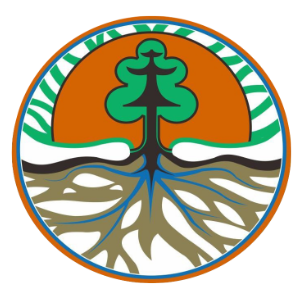
The recent expansion of oil palm (OP, Elaeis guineensis) plantations into tropical forest peatlands has resulted in ecosystem carbon emissions. However, estimates of net carbon flux from biomass changes require accurate estimates of the above ground biomass (AGB) accumulation rate of OP on peat. We quantify the AGB stocks of an OP plantation on drained peat in Malaysia from 3 to 12 years after planting using destructive harvests supported by non-destructive surveys of a further 902 palms. Peat specific allometric equations for palm (R2 = 0.92) and frond biomass are developed and contrasted to existing allometries for OP on mineral soils. Allometries are used to upscale AGB estimates to the plantation block-level. Aboveground biomass stocks on peat accumulated at ~6.39 ± 1.12 Mg ha−1 per year in the first 12 years after planting, increasing to ~7.99 ± 0.95 Mg ha−1 yr−1 when a ‘perfect’ plantation was modelled. High inter-palm and inter-block AGB variability was observed in mature classes as a result of variations in palm leaning and mortality. Validation of the allometries defined and expansion of non-destructive inventories across alternative plantations and age classes on peat would further strengthen our understanding of peat OP AGB accumulation rates.
Download:
 file
file

- Authors: Lewis,, K., Rumpang,, E., Kho,, L.K., McCalmont,, J., Teh,, Y.A., Gallego-Sala,, A., Hill,, T.C.
- Author Affiliation: University of Exeter, Malaysian Palm Oil Board, Newcastle University
- Subjects: oil palms, peatlands, emissions, tropics, plantations, aboveground biomass, emissions, carbon
- Publication type: Journal Article
- Source: Scientific Reports 10(1): 2230
- Year: 2020
- DOI: https://doi.org/10.1038/s41598-020-58982-9
















